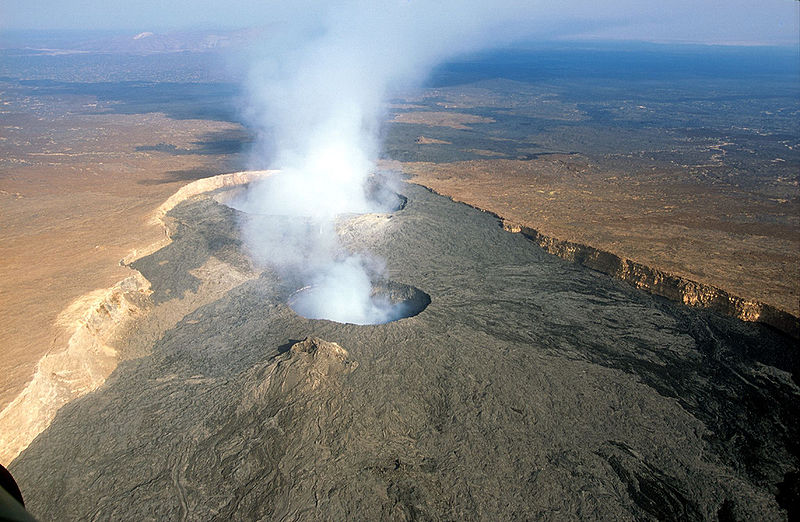Science News
Predicting Volcanic Activity
September 27, 2010

Scientists, publishing in yesterday’s Nature Geoscience, are getting closer to predicting where future volcanic activity could occur. Knowing where volcanoes can strike will hopefully contribute to efforts to limit the damage they can cause.
A team of scientists from Indiana, England and Ethiopia studied volcanic activity occurring in the remote Afar desert of Northern Ethiopia between 2005 and 2009. The area is right between the African and Arabian tectonic plates and a hotbed for volcanic activity.
The scientists studied a rare sequence of 13 magmatic events —where hot molten rock intruded into a crack, or large volcanic dyke, between the African and Arabian plates. They found that the location of each intrusion was not random.
Volcanic dykes are created when magma seeps from underground through rifts in the surface of the earth. The first one in the series of these events erupted in the Afar desert in September 2005.
In that eruption, the magma was injected along the dyke between depths of two and nine kilometers (between one and five and a half miles), and altered the tension of the earth.
The team was able to watch the 12 smaller dykes that subsequently took place in the same region over a four-year period. By monitoring levels of tension in the ground near where each dyke was intruded they found that subsequent eruptions were more likely in places where the tension increases.
The researchers believe that this sort of domino effect could take place in other volcanic areas.
Lead author, Dr. Ian Hamling said, “If you look at this year's eruptions at Ejafjallajokull in Iceland, by estimating the tension in the crust at other volcanoes nearby, you could estimate whether the likelihood of them erupting has increased or decreased. Knowing the state of stress in this way won't tell you when an eruption will happen, but it will give a better idea of where it is most likely to occur.”
Creative Commons image by filippo_jean